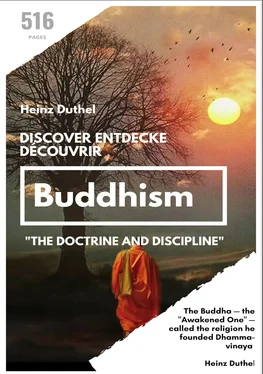— The Long Discourses of the Buddha (formerly Thus Have I Heard), Maurice Walshe, trans. (Boston: Wisdom Publications, 1987), p 403f.
That jolly fellow with the large belly who appears in Chinese and Japanese art — and whose image adorns countless lawns and living rooms in the West — is Budai (Hotei), a Boddhisatta often identified as Maitreya from a previous lifetime
Practical Buddhism
How can I find other people with whom to study Dhamma and practice meditation?
* Ask around.
* Browse through the listings of Dhamma centers and meditation groups that are published in magazines and websites. Here are some possible sources:
o Buddhadharma: The Practitioner's Quarterly includes advertisements of meditation centers in each printed issue.
o BuddhaNet's World Buddhist Directory has an extensive online directory of Dhamma centers around the world.
o Inquiring Mind: A Journal of the Vipassana Community devotes several pages of each free semiannual issue to a directory of meditation centers and independent "sitting groups." To order a copy of the current issue, see their website or write to: Inquiring Mind, PO Box 9999, Berkeley, CA 94709-0999, USA.
o Shambhala Sun Online has a searchable list of meditation centers.
o Tricycle: The Buddhist Review contains advertisements for meditation centers in the back of each quarterly issue. Their website has a searchable directory of meditation centers.
* Explore your local universities or community colleges. Do they have any Buddhist groups or clubs? Visit the student lounges, cafeterias, libraries, campus bookstore, etc. — anywhere you might find bulletin boards with announcements of campus events.
* Look for flyers posted at local bookstores, natural food stores, "New Age"-type shops, etc.
* Start a meditation group or Dhamma study group in your own living room. Advertise it with a flyer posted at one of the places mentioned above (ask for permission first!). You may be the only one attending for awhile, but be patient.
* Check the telephone book (Yellow Pages), and look under "Churches" (Thai temples? Vietnamese temples?) or "Meditation." Even if you don't see exactly what you're looking for, you may at least be able to contact someone who can give you some ideas of whom to call. Someone at a Hindu ashram or a Benedictine monastery may have some suggestions.
* More and more hospitals and health clinics offer stress-reduction and pain-control programs that make use of simplified meditation techniques borrowed from Buddhist traditions. The person in charge of one of these programs may know of ongoing Buddhist meditation groups or Dhamma centers in your area.
* Write to someone at a monastery or Dhamma center in a neighboring city, state, province, etc. and ask for his or her suggestions.
* Ask around.
There are no meditation centers or other Dhamma students nearby. How should I study Dhamma on my own?
Are you sure there aren't any meditation groups or centers nearby? Even in areas dominated by other religious traditions there may be a few other people quietly and inconspicuously practicing Dhamma by themselves. With a little patient detective work you may be able to find them (see "How can I find other people with whom to study Dhamma and practice meditation?," above).
But if you really are alone, don't despair. Although having a supportive community of like-minded Dhamma friends can be a tremendous boon to your practice, you can still make headway on your own:
Observe the precepts.
Moral conduct — codified in Buddhism as the five precepts — is the absolute bedrock of spiritual progress. Get to know the five precepts well and make an effort to follow them. Learn which ones are most difficult for you to keep and what situations put you in danger of breaking them. Make adjustments in your behavior accordingly. When you break a precept, just pick yourself up, reflect on why you fell short, and make the determination not to let it happen again. Challenge yourself with the precepts, but be patient: perfecting one's morality is a lifelong practice. (See also: "The Healing Power of the Precepts.")
Choose your company with care.
The Buddha pointed out that we tend to pick up the qualities — both good and bad — of the people with whom we associate (see Iti 76). If we care about developing good qualities in ourselves, it's therefore imperative that we associate as much as possible with good people and stay away from those who have little respect for the the precepts and wisdom. But remember that Buddhists don't have a monopoly on goodness of character; you'll find plenty of people from all walks of life who have admirable attributes such as generosity, patience, kindness, truthfulness, and so on. Get to know these people and see what you can learn from them about developing goodness in yourself.
Read, read, read.
Nowadays there are countless books and pamphlets on Buddhism, transcribed Dhamma talks, translated suttas, etc., available both in print and on the Internet. Some of them are wonderful, some are rubbish; developing the discernment to distinguish one from the other is itself a crucial aspect of learning Dhamma. The Buddha's own test of authenticity is invaluable in sorting the wheat from the chaff (see AN 8.53 and the Study Guide "Recognizing the Dhamma"). Here are some good starting points:
* The suttas. For some suggestions about how to read them — and which ones to read — see the article "Befriending the Suttas."
* Study Guides. These anthologies of readings from the suttas are designed as aids for individual or group study on particular topics.
* "Beginnings: Suggested Entry Points for this Website"
* What are some good beginning books on Buddhism? (Frequently Asked Question).
Take a class.
If at all possible, take part in an introductory meditation workshop or retreat conducted by an experienced teacher. Even if you have to travel a long distance in order to attend, you may be rewarded with enough helpful advice to nourish your meditation and your studies for a long time to come.
Even if you don't have a community of friends, you can still learn to ask yourself good questions — questions that will propel you deeper in your understanding of Dhamma (see "Questions of Skill"). Who was the Buddha? What did he accomplish? What is the goal of Buddhist practice? What is enlightenment? Why is morality the foundation of the Buddha's teachings? What is the purpose of meditation? What is wisdom? Am I honestly following the path that the Buddha laid out? What is the role of faith? If you can keep questions like these alive in your heart, you're bound to stay on track.
I want to become a Buddhist. How do I do that?
It begins with one deceptively simple act: making the inner commitment to "take refuge" in the Triple Gem, to accept the Buddha, Dhamma, and Sangha as your source of spiritual guidance.1 This act is what makes one nominally "Buddhist." But going for refuge also implies a willingness — if only provisional, at first — to accept the cornerstone of the Buddha's teachings: the law of kamma. According to this universal principle, if you act unskillfully and make poor ethical choices, you are bound to suffer the consequences; if you choose wisely and act in line with the noblest ideals, you stand to benefit accordingly. In other words, your happiness ultimately depends on the quality of your choices and actions; you alone are responsible for your happiness. Your first act after seeking refuge should therefore be to resolve to observe the five precepts — the five basic principles of living that can help prevent you from making grossly unskillful choices. This is where the practice of Buddhism begins.
You don't need a formal public ceremony or "initiation" to make any of this official. There are no equivalents in Buddhism to Christianity's "baptism" or "confirmation" rituals. You don't have to dress differently or wear a badge that says, "I am now a Buddhist." The practice of the Dhamma is a private matter and no one needs to know about it but you. Many Buddhists do, however, find it invaluable to renew their commitment to the Triple Gem and to the precepts from time to time in a more formal way, enlisting the help of a good friend, a respected meditation teacher, or a member of the monastic community (Sangha) as a witness.3 Administering the refuges and precepts to laypeople is a duty that Buddhist monks are glad to perform.
Читать дальше












